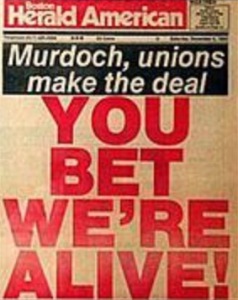 By Jeffrey J. Pyle
By Jeffrey J. Pyle
Thanks to The Boston Globe’s Todd Wallack, we learned last week that the supervisor of records, charged with enforcing the Massachusetts public records law, has permitted police departments withhold arrest reports and mug shots from the public in their “discretion.” Unsurprisingly, police departments have exercised that “discretion” to shield the identities of police officers arrested for drunken driving while publicizing the arrests of other Massachusetts residents for the same crime.
Yesterday, Secretary of State William Galvin took to Jim Braude’s “Greater Boston” show on WGBH-TV (Channel 2) to defend the rulings. He pointed out that he had previously ruled that arrest reports to be public, but said he had to back down because another agency, the Department of Criminal Justice Information Systems (DCJIS), told him the records are secret under the “criminal offender record information” (CORI) statute. Former attorney general Martha Coakley shared that view, Galvin said, and the new attorney general, Maura Healey, has tentatively agreed.
But are they correct? Does the law allow the police officers to decide which arrest reports do and do not get released? The answer, thankfully, is no.
First some quick background. The public records law creates a presumption that all government records are public. Only if a specific, listed exemption applies can the government withhold documents, and those exemptions are supposed to be construed narrowly. Galvin relies on the exemption for records “specifically or by necessary implication exempted from disclosure by statute,” here, the CORI law. The CORI law does impose certain limits on the disclosure of “criminal offender record information,” but it limits that term to information “recorded as the result of the initiation of criminal proceedings and any consequent proceedings related thereto.”
The word “initiation” is important. As late as 2010, Galvin’s office held the commonsense view that a “criminal proceeding” is initiated with the filing of a criminal complaint. Arrest reports and mug shots are generated before criminal complaints are filed, so they’re presumptively public. But in 2011, the DCJIS (which administers the state’s CORI database) told Galvin it believed “initiation of criminal proceedings” means “the point when a criminal investigation is sufficiently complete that the investigating officers take actions toward bringing a specific suspect to court.” That necessarily precedes arrest and booking, so all arrest reports and mug shots are covered by CORI. This “interpretation” is now contained in a DCJIS regulation. Another regulation says that police can release CORI information surrounding an investigation if they think it’s appropriate to do so.
In the common parlance, however, “criminal proceedings” occur in court, and they begin with the filing of a criminal charge. We don’t typically think of an arrest without charges as involving a “proceeding.” Galvin seems to agree — his office’s rulings have said only that DCJIS believes “initiation” occurs earlier — but he has thrown up his hands and deferred to this odd “interpretation” of the CORI statute.
The thing is, Galvin isn’t bound by what DCJIS says. The public records law says that the supervisor of records is entitled to determine “whether the record requested is public.” The DCJIS’s regulation adopting this view is irrelevant, too, because as noted above, the public records law only exempts documents “specifically or by necessary implication exempted from disclosure by statute.” The Supreme Judicial Court ruled in 1999 that the “statutory” exemption doesn’t extend to mere regulatory enactments “promulgated under statutory authority,” even “in close cooperation with the Legislature.” Despite this ruling, just Wednesday, Galvin’s office again refused to order state police officer mug shots to Wallack on the ground that “[b]y regulation,” — not statute — they are exempt CORI documents.
Wallack’s reporting has led us to a momentous Sunshine Week in Massachusetts. We’ve seen unusual, coordinated editorials in major Massachusetts newspapers condemning the rulings, a letter published in the Globe, the Boston Herald and GateHouse Media newspapers (including The Patriot Ledger of Quincy and The Herald News of Fall River) signed by members of the Northeastern Journalism School faculty, and extensive coverage on the normally neglected subject of government transparency.
To his credit, Galvin is calling for reforms to the public records law, and Attorney General Healey has vowed to work with his office to strengthen transparency. Reforms are sorely needed, especially to require shifting of attorneys’ fees if a requester successfully sues. But in the meantime, Galvin can and should reconsider his misguided rulings on arrest records.
Jeffrey J. Pyle is a partner at the Boston law firm of Prince Lobel Tye and a trial lawyer specializing in First Amendment and media law.






